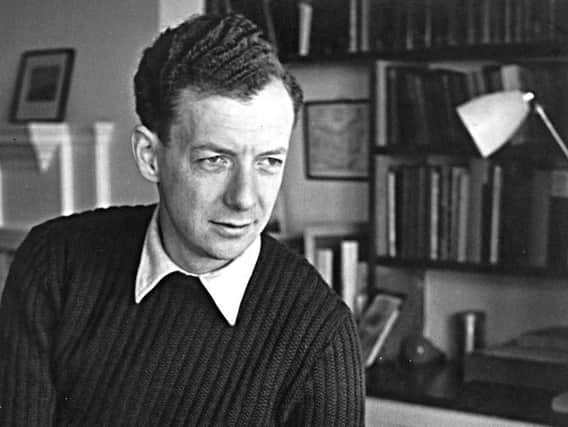One of Britain's finest musical exports is Benjamin Britten


It is often said that much British art music “doesn’t travel well,” with far more adulation for its composers at home than abroad.
But there are few such slurs put against Benjamin Britten (1913-1976) who was probably his country’s best-received export in the field since his idol Purcell in the 17th century.
Advertisement
Hide AdAdvertisement
Hide AdHis music has great individuality marked sometimes by deceptive simplicity verging on the childishly naive, sometimes bleakly spare and occasionally violent.
Britten could, like some of his music, be spiky and famously fell out with many a friend or collaborator but had an almost life-long musical and personal asociation with his partner, the tenor Peter Pears, for whom he wrote much music.
His contribution to British opera (if we discount the German-born Handel) is unprecedented and he wrote many pieces to be performed by children. His homosexuality already made him something of an outsider and his conscientious objections during the Second World War further marginalised him.
But Britten is today regarded as one of Britain’s greatest ever composers (and pianists for that matter) and also revered for establishing the marvellous annual Aldburgh Music Festival in Suffolk. He was also the first composer to be awarded a life peerage. Here is a sample of his finest works:
Advertisement
Hide AdAdvertisement
Hide AdPeter Grimes: Britten’s first, and widely regarded as his best, opera about a Suffolk fisherman suspected of killing his apprentice. It is performed all over the world and the Four Sea Interludes plus the Passacaglia taken from the work enjoy concert lives of their own.
The Young Person’s Guide to the Orchestra: Once a staple of every school music lesson it is variations based on a theme by Purcell which introduces newcomers to all the sections and instruments of the orchestra in turn and culminates with a virtuosic fugue topped by the theme’s noble return.
War Requiem: Written for the consecration of the new Coventry Cathedral in 1962, its predecessor having been obliterated by Second World War bombing, it melds traditional liturgical texts with the poems of Wilfred Owen. It has become the musical epitome of pacifict’s plea for reconcilliation.
Serenade for Tenor, Horn and Strings: An acclaimed masterpiece, it is a setting of a selection of six poems by British poets on the subject of night, including both its calm and its sinister aspects.
Advertisement
Hide AdAdvertisement
Hide AdCello Suites: Britten wrote a fabulour body of chamber music, the last two of his three quartets being stunning examples of the genre; but his three solo cello suites, all written for the great Mstislav Rostropovich can only be rivalled by Bach’s in the genre.